by UFO History Buff & Author, Charles Lear
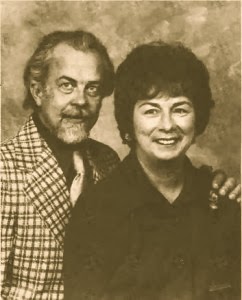
After Project Blue Book was shut down in 1969, private UFO groups were the only organizations left in the U.S. that would take UFO reports, and the two biggest were the National Investigations Committee on Aerial Phenomena and the Aerial Phenomena Research Organization. Donald Keyhoe was ousted as NICAP’s director just three days before the December 17, 1969, press release announcing Blue Book’s termination, and NICAP quickly became a shadow of its former self while APRO, run by its founders Jim and Coral Lorenzen, remained a formidable and influential organization. That same year, a group of APRO investigators living in the Midwest organized by Walt Andrus as the Tri State Study Group, decided on May 31st to branch off from APRO and operate as the Midwest UFO Network. This was in reaction to the Lorenzens’ move towards a more centralized management strategy seeking to direct all field investigations from their office in Tucson, Arizona. The Lorenzens, particularly Coral, who had a reputation for being contentious (she frequently took out her ire in the pages of the APRO Bulletin, and her earliest targets as far back as 1952 were Albert K. Bender and James W. Moseley) took the Midwestern group’s decision personally and held a grudge for years to come. The Midwest UFO Network soon outgrew its Midwestern boundaries and the name was changed to the Mutual UFO Network in 1973. A rivalry developed between the two, and this resulted in clashes when they happened to converge on a given case, and a prime example of this is the 1981 Cash-Landrum case.
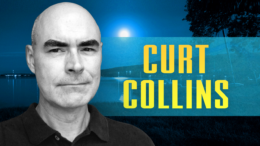 One can get a behind the scenes look at the conflict that developed during the investigation thanks to documents made available by Curt Collins on his blogspot.com site, Blue Blurry Lines, in an article posted January 21, 2014, headlined “MUFON vs. APRO, Allegations, Accusations & Countercharges.” Looking at the documents, things seemed to have been stirred up by an article (page 2 of pdf) written by Coral headlined “Rumors Permeate Cash-Landrum Case” published in the June 1982 Vol. 30, No. 6 APRO Bulletin. It’s not often that Coral or Jim credit themselves as the writer of a given article, and when they do, it’s often when they have something to get off their chests.
One can get a behind the scenes look at the conflict that developed during the investigation thanks to documents made available by Curt Collins on his blogspot.com site, Blue Blurry Lines, in an article posted January 21, 2014, headlined “MUFON vs. APRO, Allegations, Accusations & Countercharges.” Looking at the documents, things seemed to have been stirred up by an article (page 2 of pdf) written by Coral headlined “Rumors Permeate Cash-Landrum Case” published in the June 1982 Vol. 30, No. 6 APRO Bulletin. It’s not often that Coral or Jim credit themselves as the writer of a given article, and when they do, it’s often when they have something to get off their chests.
Lorenzen begins by explaining that investigators are often hampered by rumors and hearsay and that in February of that year, a rumor went around that the U.S. Government was paying the medical expenses of Betty Cash and Vickie Landrum, who, along with Vickie’s grandson Colby, reported an encounter with a mystery craft near Huffman, Texas, on December 29, 1980, that seemed as if it was being escorted by 12-20 Chinook helicopters. According to Lorenzen, they watched the “brilliant object” for many minutes and “all three suffered physical effects including burns, eye damage and severe nausea, which is generally attributed to radiation ‘poisoning.’”
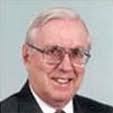 According to Lorenzen, John “Scheussler” (should be Schuessler) alleged that there were no Chinooks based in the area of Houston. Schuessler was the director of the Vehicle Internal Systems Investigative Team based in Houston, and APRO shared the case information with him in this capacity, but he was also the deputy director of MUFON.
According to Lorenzen, John “Scheussler” (should be Schuessler) alleged that there were no Chinooks based in the area of Houston. Schuessler was the director of the Vehicle Internal Systems Investigative Team based in Houston, and APRO shared the case information with him in this capacity, but he was also the deputy director of MUFON.
Lorenzen takes issue with the presentation of the case on That’s Incredible! saying it misled the public by strongly suggesting that the UFO was indeed that; an object that could not be identified. She also mentions that the “no less a personnage [sic] than J. Allen Hynek” described the case on radio as “one of the best cases” he’d come across.
What they might have seen remains a mystery to this day, but Lorenzen makes the following statement as if she has some sort of inside information:
We can’t give the proper name or a code name or number, but the object seen by Cash, Landrum and Landrum, was a U.S. experimental aircraft which had gotten out of control and was being escorted or “herded” by the helicopters.
Lorenzen then goes into the details of how APRO became involved in the case and how Schuessler ended up as the primary investigator. According to her, Robert Gribble of Seattle based Phenomena Research (also the founder of the National UFO Reporting Center in 1974) called APRO to let them know about the case and a local member who was in the office at the time passed the information along to the Weekly World News “and thereafter, the responsible individuals at APRO lost control of the case.” This is said to have happened before Jim Lorenzen, then director, heard about the case.
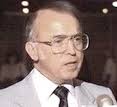
Coral says Jim gave the basic info to Schuessler, who lived in Houston. She then complains that Schuessler hasn’t sent the corroborating witness reports or the medical records that Jim requested. She adds that MUFON Director Walt Andrus had “accused APRO of ‘isolationism’” in the Spring 1981 MUFON Journal, and she seems to be arguing against this by pointing out that APRO has turned the Cash-Landrum case over to Schuessler and has also sent him information on an abduction case they were investigating that had supporting witnesses in Texas.
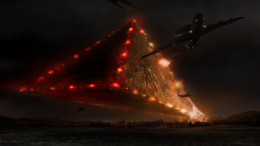 Lorenzen then seems to insinuate that Schuessler, Andrus and Hynek might be participating in covering up the fact that a U.S. Government craft was involved in the Cash-Landrum case. She presents the “facts” that Schuessler was employed by a company that worked for NASA, that Andrus worked for Motorola, which had government contracts, and that Hynek was a scientific advisor for Project Blue Book for over 20 years.
Lorenzen then seems to insinuate that Schuessler, Andrus and Hynek might be participating in covering up the fact that a U.S. Government craft was involved in the Cash-Landrum case. She presents the “facts” that Schuessler was employed by a company that worked for NASA, that Andrus worked for Motorola, which had government contracts, and that Hynek was a scientific advisor for Project Blue Book for over 20 years.
According to Lorenzen, in a phone call between Schuessler and APRO, Schuessler provided the information that Betty Cash had filed a suit against the government with the help of Citizens Against UFO Secrecy and she expresses concern as to “whether or not the suit mentions a government craft or a UFO (which would involve UFO secrecy either way) as the culprit.”
Lorenzen says she is also concerned that Cash and the Landrums “may be merely pawns in some kind of game” after suffering and continuing to suffer as a result of their “encounter with a U.S. government experimental aircraft.”
Finally, Lorenzen closes with this: “How often will this happen in the future and will American UFOLOGY sheepishly cover up for official boo-boos?”
Schuessler responded with a five-page letter dated June 29, 1982, addressed to Jim Lorenzen, which indicates that he sent copies to Cash, Landrum, Andrus, Hynek, Peter Gerston, Bob Pratt, Richard Hall, Bill Moore, and that he provided others for “distribution at MUFON symposium.” After saying that he has found it “necessary” to write the letter in response to the article and that the APRO Bulletin is usually “well-written and informative” and “a positive force in the UFO field,” he lists his complaints in the second paragraph:
Because your bulletin addresses me by name (misspelled in several places), makes the victims of the incident appear questionable, and alleges my work has some connection with a coverup [sic], I feel it necessary to reply to each point.
Schuessler points out that the two main rumors going around about the case are that Betty Cash had died and that the government was paying the witnesses bills. He says the rumors are not true, had been spread by APRO members “one of whom is an ex-VISIT associate,” and that he had informed Mrs. Lorenzen of this “many months ago.”
Schuessler addresses the “allegation” that he didn’t find any Chinooks based in the area saying he found 8 at Ellington AFB, 16 in Dallas (operated by the Army National Guard in both locations), and “several hundred helicopters, many of them Chinooks” at Fort Hood/Gray Field. He clarifies that what he said was that “none of the units admit to flying near Huffman on December 29, 1980.”
Schuessler calls Lorenzen’s concern that people were misled by the presentation on That’s Incredible! an opinion and says Mrs. Cash and Mrs. Landrum both said the portrayal was accurate. He adds that they were hoping the program would put pressure on people covering up evidence and “help them in their plight.”
Schuessler’s most serious complaint is that it was alleged in the Bulletin “that you know all about the object” and he pleads with Jim that if “you really do have such information, then you could relieve a lot of heartache for Mrs. Landrum by sharing the information.”
Schuessler then presents a timeline of the events which includes Cash’s hospital visits, explains that his “weak” excuses for not supplying the medical records is that he was too busy and that his “strong excuse” is that they are private, and addresses the cover-up insinuation by explaining that he keeps his UFO interest separate from his work for NASA and says “if there were a government UFO project, I would be first in line with an application for employment: but unfortunately, there are no jobs in that field.”
Next week: Coral replies.